In bid for US Senate, Hagerty and Sethi tout conservative credentials, support for Trump, leaving GOP divided – The Tennessean
Early voting is underway for Tennessee’s Aug. 6 primary, when Republican voters will choose from 15 candidates seeking the party’s nomination to succeed retiring U.S. Sen. Lamar Alexander.
Leading in the race are former U.S. Ambassador to Japan Bill Hagerty, 60, and Nashville orthopedic trauma surgeon Manny Sethi, 42, who have retained frontrunner status in a primary shaped by support for and from President Donald Trump.
The candidates are on the campaign trail as the pandemic continues — and as the polling gap between them narrows.
In early July, The Tennessean traveled to campaign stops with both candidates to hear their latest stump speeches and interactions with voters. The interviews for this story took place as Sethi met with supporters in several East Tennessee counties on July 7 and as Hagerty campaigned in Lobelville and Somerville on July 8.
A battle between two winning 2018 campaigns
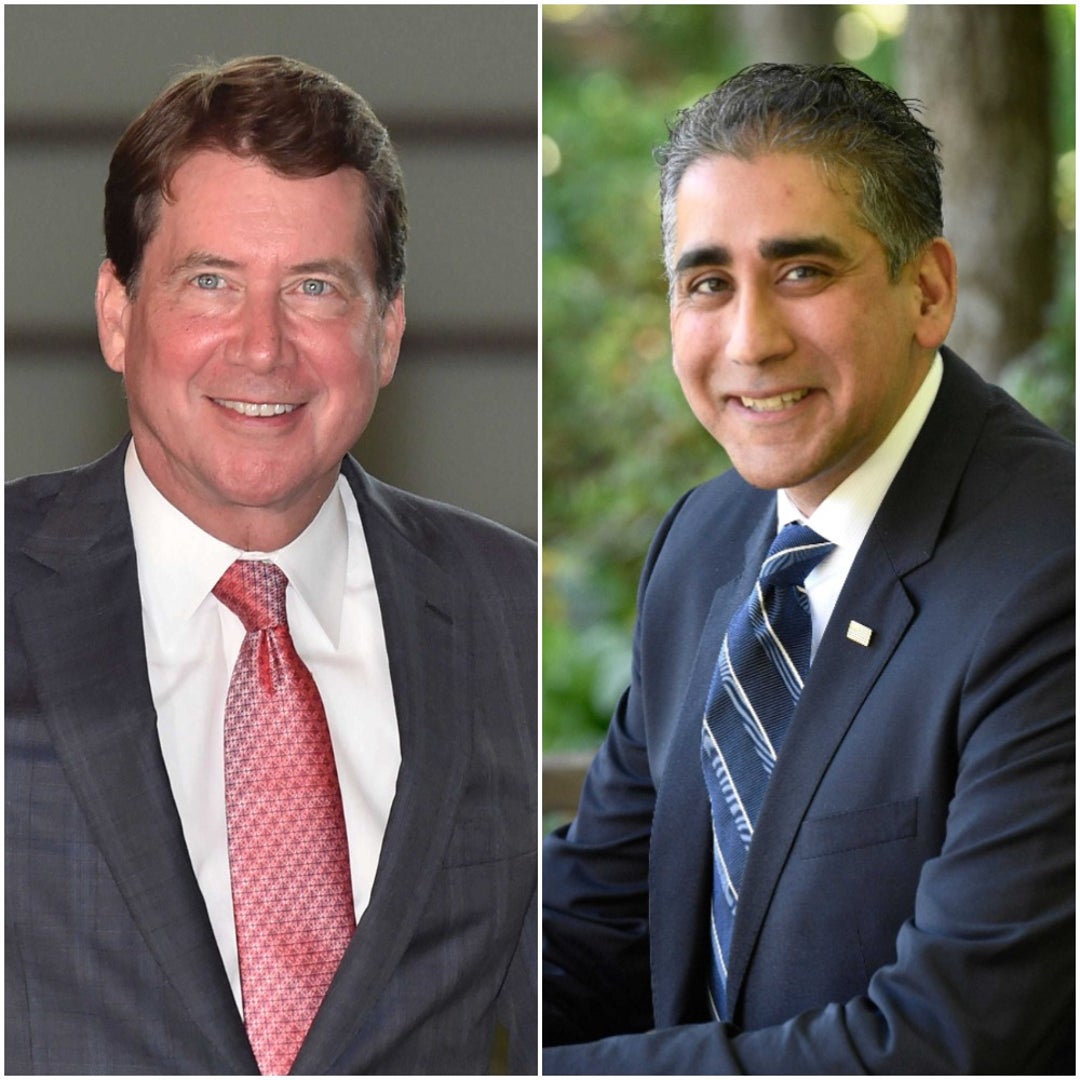
The primary, in many ways, is a race between two winning Tennessee campaigns from 2018.
Both in staffing and strategy, Sethi’s campaign mirrors Gov. Bill Lee’s while Hagerty’s follows the playbook of U.S. Sen. Marsha Blackburn’s campaign: a grassroots-heavy, RV tour of the state in Lee’s gubernatorial race, versus Blackburn’s presidential endorsement and rhetoric, including a desire for “constitutionalist” judges.
Beyond Trump’s support, Hagerty has the backing of the business community, including an endorsement from the U.S. Chamber of Commerce.
Embracing his previous work with the Trump administration and as former Gov. Bill Haslam’s economic development chief, Hagerty said his experience will provide him a significant leg up if he’s elected.
“I think I’ll have a different currency than any other freshman senator coming into the United States Senate, because of that strong working relationship that I’ve already developed,” he said in an interview. “No on the job training required.”
2020 ELECTION: In another bid for office, Memphis businessman George Flinn draws contrast with Trump
2020 ELECTION: Statewide Dem preview: Democrat James Mackler hopes to ‘cancel out’ Blackburn
Hagerty, who had name recognition early in the race, was not forced to rely on extensive grassroots efforts as the primary way to build his campaign.
Trump tweeted his support twice for Hagerty, who announced Friday morning he would be holding a virtual tele-town hall that night with the president. Hagerty hosted several Trump-connected individuals for campaign events, including the president’s son, Donald Trump Jr., and a conference call with Larry Kudlow, Trump’s economic adviser.
“I’m not sure there’s a candidate in this nation that’s more equipped in these current economic times — current very turbulent times in this global economy that we live in — than Ambassador Hagerty,” said Lobelville Mayor Robby Moore.
Sethi, meanwhile, is emulating Lee, branding himself as an outsider, a self-proclaimed new-to-politics conservative who is aggressively traveling to host town hall events in all 95 counties. He is doing so in a decal-wrapped campaign bus, zig-zagging from one end of the state to the other, sometimes in a single day, to meet with modest-sized groups of voters.
“I don’t think (Hagerty) actually represents people’s interests in Tennessee,” Sethi said in an interview on his RV.
Sethi drew several dozen supporters at each East Tennessee stop in early July, giving a stump speech before taking questions from the audience.
“His message is not only conservative Christian, it’s so down-home,” said Elsie Handy, 43, who came to a midday July 7 event in Clinton with her mother after learning about Sethi from a television ad. “It doesn’t feel like you’re going to be voting for someone who’s on a pedestal, who is so far up in the distance.”
Inside the Anderson County fairgrounds building, Handy approached Sethi when it was her turn in line during the meet-and-greet. He complimented the white sneakers she wore with her long skirt, noting his own preference for comfortable shoes.
“Thanks,” Handy said. “They’re from Walmart.”
His most loyal supporters, actively sharing the word about Sethi on Facebook, tout the candidate as someone who relates to them; someone who will stand up to an establishment that isn’t fully in touch with them, they say.
Both candidates align themselves as closely as possible to Trump
Both campaigns emphasize their support for Trump.
Hagerty cites his role as a fundraiser for Trump in 2016 and more recently his appointment by the president to an economic recovery task force. In March, when Trump visited Tennessee to tour tornado ravaged areas, Hagerty greeted him at the airport.
While Hagerty was traveling between campaign stops in Lobelville and Somerville, Trump called him to discuss the race and the president’s decision to withdraw from the World Health Organization.
Even before Hagerty entered the race, Trump endorsed him, a point frequently highlighted on the campaign trail and in literature, yard signs and t-shirts.
And although Hagerty’s campaign had hoped to get Trump to visit Tennessee during the race, the president reiterated his support for his bid in early July on Twitter.
While Trump’s support for Hagerty gives him a unique advantage in the race, such backing has not always proven to be a fail safe. In recent elections, some Trump-supported candidates have lost their primary bids, including in North Carolina, Kentucky and Colorado.
Sethi has embraced Trump and aligned himself with the president’s positions. Sethi — who vows he voted for Trump in the 2016 presidential primary, whereas Hagerty that year served as a delegate for candidate Jeb Bush — portrays himself as the true conservative outsider in the race.
Sethi says Trump’s endorsement of his opponent stemmed from an “inside swamp deal” and attacked Hagerty for his years-long close connections in Washington.
“He is handpicked by the establishment, and he’ll always be beholden to D.C. insiders,” Sethi said.
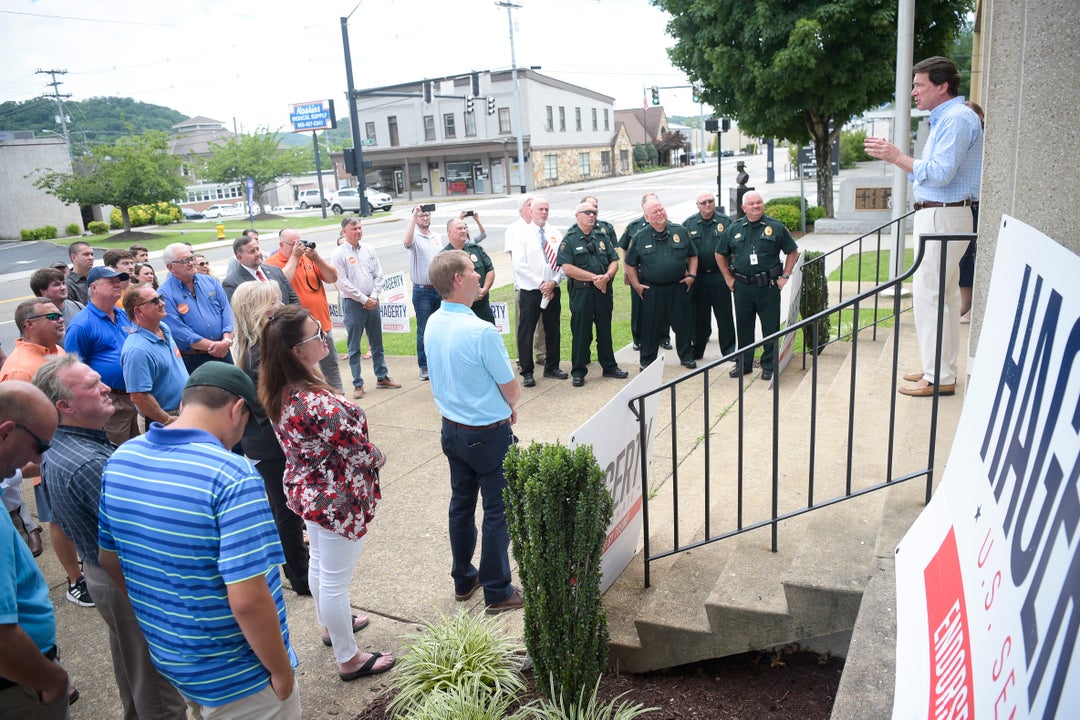
Hagerty rarely mentions his opponents in the race while on the campaign trail. While in Somerville, he alluded to his GOP competitors without naming them.
“Nobody else running in this race lifted a finger to help President Trump get elected back in 2016,” he said, pointing to his role as a Trump fundraiser and member of the presidential transition team. “They didn’t contribute a dime.”
During an interview, Hagerty elaborated, saying he is the only GOP candidate in the race who has a long track record of support for Trump.
John Geer, director of the Vanderbilt University Poll and political science professor, noted Trump’s endorsement has still proven powerful in a place like Alabama. Last week, his pick in a U.S. Senate primary, Tommy Tuberville, easily defeated former U.S. Attorney General Jeff Sessions, one of Trump’s foes.
But unlike in that race, Trump hasn’t bothered to attack Hagerty’s top opponent.
“The Trump endorsement matters,” said Geer, “but because Trump hasn’t been going after Sethi, it doesn’t have the same power.”
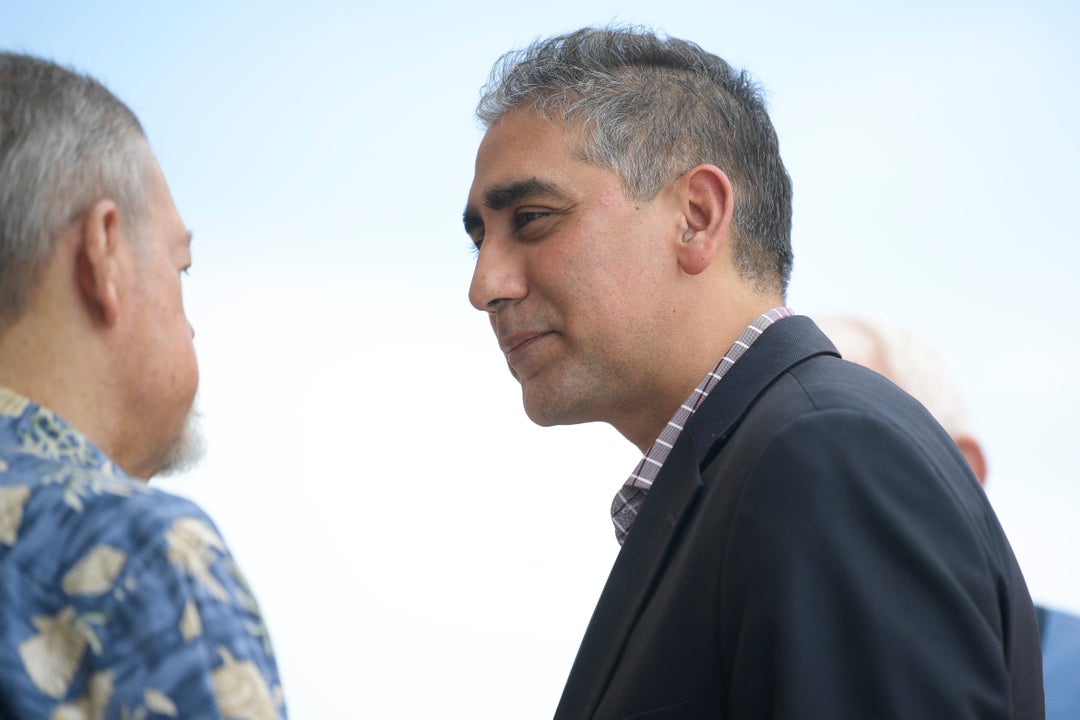
Small town roots, prestigious colleges and realizing the American Dream
The two candidates both grew up in rural southern towns and were educated at prestigious colleges: Sethi at Brown University before attending Harvard Medical School, and Hagerty at Vanderbilt University for his undergraduate and law degrees.
The candidates’ more notable similarities, however include their rhetoric on popular Republican talking points. Both embrace conservative positions, blasting illegal immigration and anti-police sentiments while citing the need to hold China accountable for the COVID-19 pandemic.
Both candidates tout family values, their religion and pro-life positions while highlighting their personal stories as emblematic of the American Dream.
In his stump speeches and ads, Sethi talks about his parents — doctors who “pulled themselves up by their bootstraps” and “waited in line” to legally emigrate from India to the United States, eventually settling in Coffee County where they helped run the Coffee Medical Center in Manchester.
“Folks just like you, exactly like you, gave these two immigrants from India a chance,” Sethi said at his Anderson County town hall earlier this month.
“And look what happened next. I became a doctor, my brother became a doctor. I am running for the United States Senate. That is the power of this country. That is the American story.”
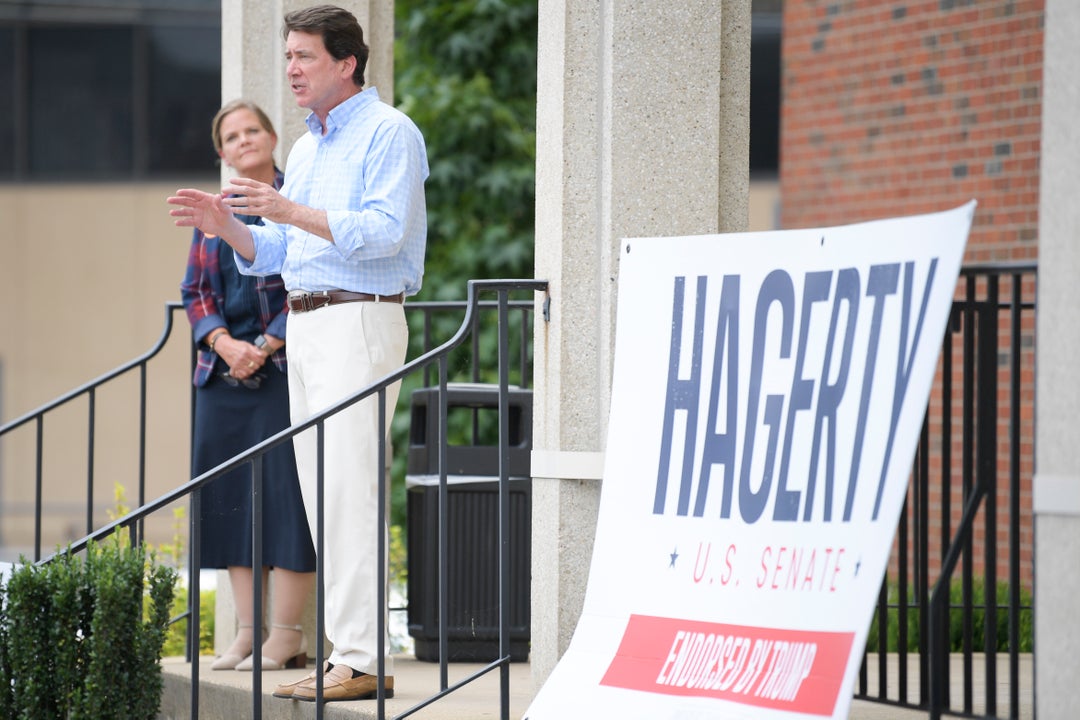
Noting his family’s Sumner County roots during his Somerville visit, Hagerty said he grew into a successful businessman after attending public schools and working with his high school educated father who shoveled asphalt.
“That’s possible in America,” he said. “Where else could a small-town kid like me spend the last four years working side by side with the President of the United States?”
They’ve also criticized members of their own party.
Hagerty blasted “weak-kneed” Republicans, even rebuking Alexander for his support of staying in the WHO.
“What we need right now in the U.S. Senate is backbone,” he said.
Sethi also invoked Alexander’s name at his town hall in Anderson County, though seeking to tie Hagerty to him by describing his opponent as someone who “dines with Lamar” and “knows where the Senate dining room is” at the U.S. Capitol.
Hagerty told The Tennessean the embrace of the Black Lives Matter movement by U.S. Sens. Sherrod Brown and Mitt Romney was problematic. While campaigning, Hagerty has criticized Romney on numerous occasions.
Sethi, meanwhile, reminds voters that Hagerty worked for Romney during both the 2008 and 2012 presidential campaigns. Hagerty initially served as Romney’s national finance chairman and subsequently oversaw his “readiness team,” a similar role Hagerty later took on for Trump.
Despite coronavirus, campaigns pack in crowds for in-person events
Like other campaigns this year, the candidates have been forced to adjust their activities due to the COVID-19 pandemic. During the early months, Sethi and Hagerty largely avoided in-person gatherings, in favor of tele-town halls and conference calls to keep voters engaged.
But in recent weeks — as COVID-19 cases have skyrocketed in Tennessee — the campaigns have moved forward with in-person events while traveling throughout the state. Hagerty and Sethi freely shake hands with voters and never wear masks.
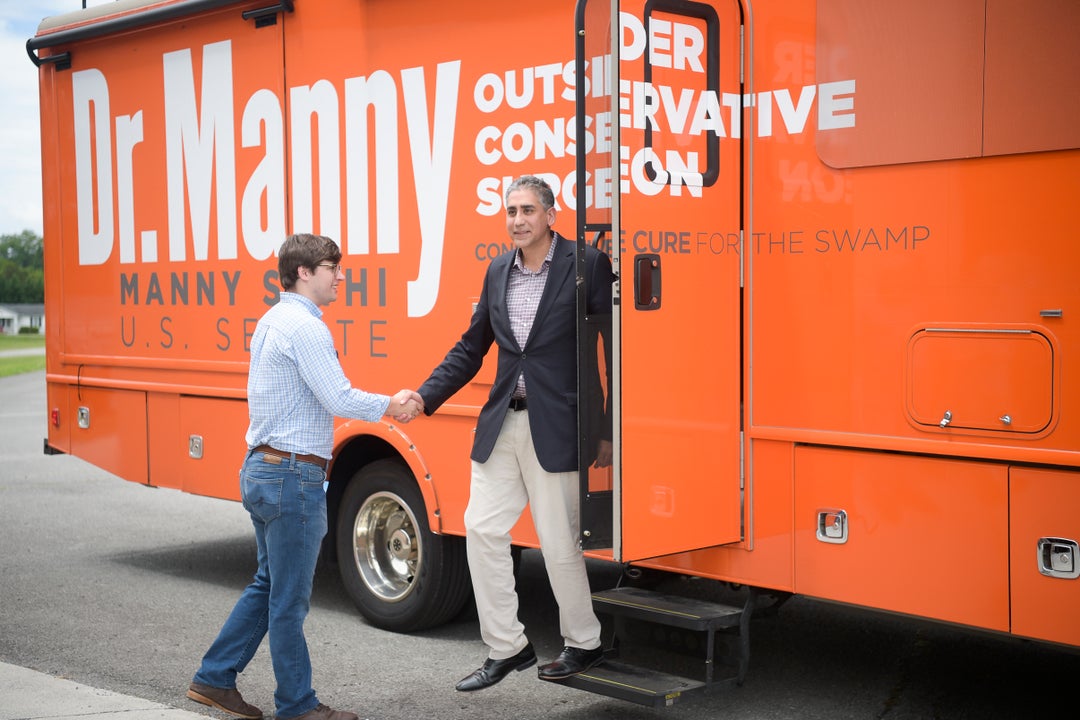
Hagerty’s July 8 events were attended by more than 150 people gathered in small restaurant spaces, the vast majority without face coverings. A reporter only saw Hagerty use hand sanitizer once in public.
At his town hall events in Anderson and Scott counties — as the Sethi campaign does at most all events now — a staffer sat at a sign-in table offering disposable masks and hand sanitizer to anyone who desired them, though few chose to wear masks.
Both candidates have stressed the severity of the economic impact of the pandemic over the health crisis. Hagerty said as a result of the pandemic, jobs and the economy have been at the forefront of voters’ minds.
“The number one issue that voters are going to have going into the election … is putting America and Tennessee back to work,” Hagerty said.
While Sethi took a break in March from frequent campaigning to focus on being of service to his employer, Vanderbilt University Medical Center, he made the decision to step away from the hospital to get back on the road in early May, announcing he would embark on a 95-county tour ahead of the primary.
“I think we overreacted,” Sethi said of the government’s response to the pandemic, specifically the widespread shutdown of businesses. “We should have kept it open and protected those people who were vulnerable.”
Throughout the day, however, Sethi routinely slathered on hand sanitizer as he boarded back onto his campaign RV after stops.
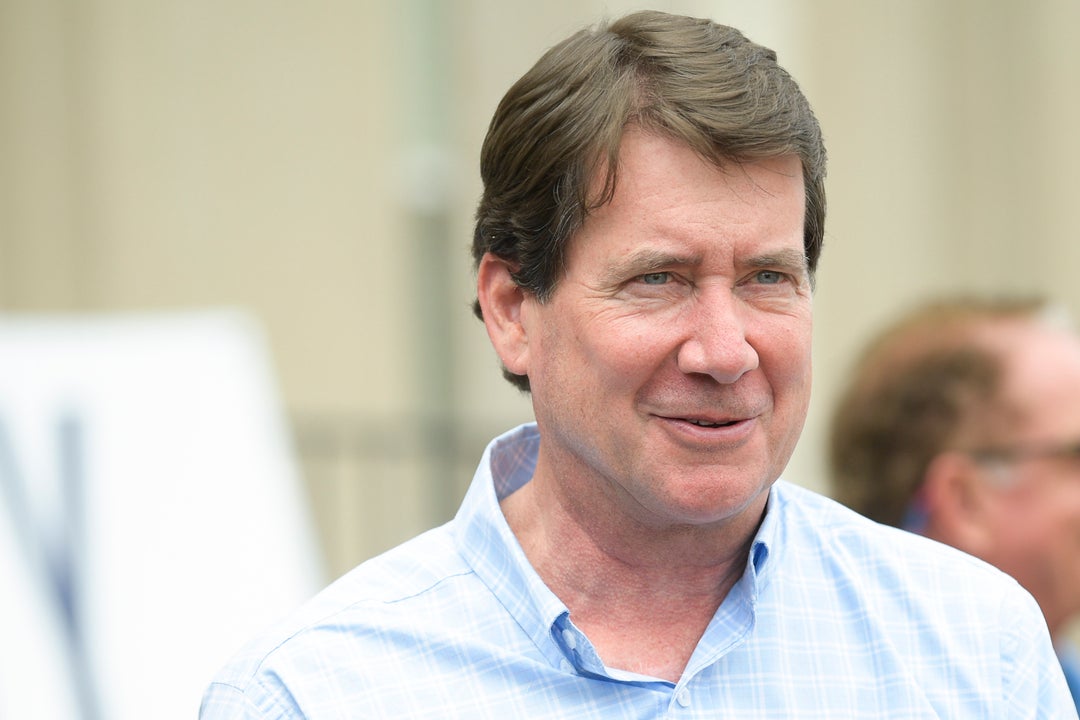
He stressed the need for the United States to secure its own manufacturing of medical equipment and drugs, no longer relying on the “communist Chinese government” in the supply chain.
Sethi’s friend and fellow member of Vanderbilt’s six-doctor orthopaedic trauma team, Dr. Alex Jahangir, has led Metro Nashville’s response to the virus as chairman of the city’s board of health. Jahangir serves an advocate for universal mask wearing and heavy-handed government action to quash the virus.
“We just disagree,” Sethi said of the two doctors’ attitudes on the pandemic.
Asked about the recent rise in cases in Tennessee and his supporters not wearing masks at campaign events, Hagerty said he was more concerned about the economy.
“That has significant consequences as well,” he said. Hagerty said many people in the medical community have been “consistently wrong” about the severity of the pandemic.
“I don’t want to make light of this,” he said. “I think that everybody should make a decision for themselves that’s right for them.”
Regarding masks, Sethi argued that “the data is unclear” on whether they are effective in stopping the spread of the virus.
While health officials in the initial stages of the pandemic said masks were not necessary, the Centers for Disease Control and Prevention has since declared that science shows face coverings are critical to slowing the spread of the virus.
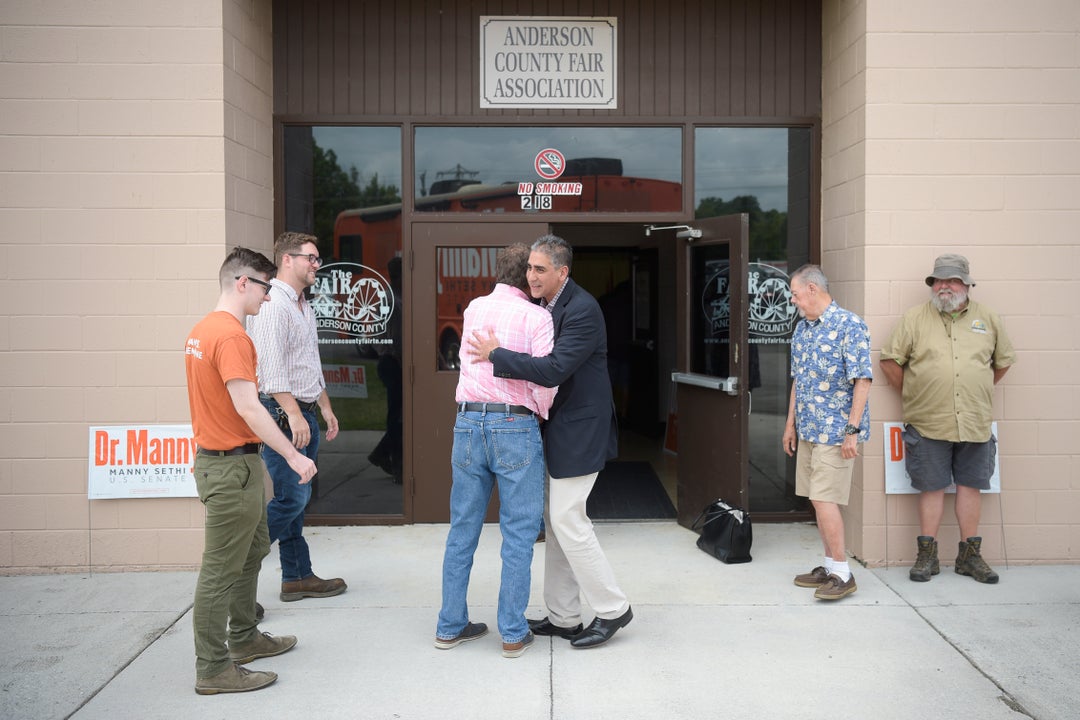
Race to prove conservative bonafides reminiscent of 2018
As the two Senate candidates campaign, some political insiders have flashbacks to Tennessee’s 2018 gubernatorial race when Lee, former House Speaker Beth Harwell, former state economic development commissioner Randy Boyd and former U.S. Rep. Diane Black sought the GOP nomination.
Throughout the campaign, Black and Boyd tried to aggressively tout their conservative credentials. For Boyd, the move to the right surprised some, given his lack of such rhetoric before entering the race.
Sethi’s and Hagerty’s campaigns have observers noting a more conservative shift to outflank one another. In one of his TV ads, Sethi criticized illegal immigrants, daring people to call him racist, while Hagerty said Trump should be added to Mount Rushmore.
In the race to prove who is most conservative, Hagerty resigned from a board position at R.J. O’Brien & Associates after the company donated to Black Lives Matter.
Thursday both campaigns launched new negative TV ads against each other. Hagerty’s team attacked Sethi for donating to an unspecified left-leaning group while Sethi’s campaign highlighted Hagerty’s donation to former Democratic Vice President Al Gore.
Kyle Kondik, managing editor of Sabato’s Crystal Ball at the University of Virginia Center for Politics, said the “hugging” of Trump by Hagerty and Sethi is similar to what has occurred in other races across the country.
“It shows a feeling by Republicans that they just have to be close to the president if they want to win a primary,” he said.
In recent years, Kondik said, candidates in Republican primaries have shown an “almost cartoonish” alignment with Trump that was different than Democrats’ embrace of former President Barack Obama during elections.
Sethi’s and Hagerty’s efforts to prove their conservative credentials have divided members of the state’s Republican Party. Both campaigns boast endorsements from state and federal lawmakers.
In addition to U.S. Sen. Rand Paul, R-Kentucky, Sethi received the backing of former U.S. Rep. Jimmy Duncan, a longtime East Tennessee congressman who stumped for Sethi in Scott County. In an interview, Duncan said he originally planned to stay out of the race, but figured he would support Hagerty.
Then Sethi’s message of taking on the liberal mob and the party establishment began to resonate with Duncan, he said.
“I just have the impression that Dr. Manny’s a strong conservative, and I don’t believe he’ll change when he’s in office,” Duncan said. “In the Republican primary, everybody acts like a conservative. And then some of them don’t govern in the same way they campaign.”
Meanwhile, Rep. Andy Holt, R-Dresden, one of the more conservative state lawmakers, supports Hagerty, citing his support for Trump, his stance on illegal immigration and his criticism of China.
“I think he’s the clear choice and the conservative choice,” said Holt in a July 9 video posted on Twitter.
Prior to early voting beginning, both campaigns offered widely different views of the margin between the two candidates. An internal poll from Sethi’s campaign found the two nearly tied — a drastic jump from a month earlier, when he was down by double digits — while Hagerty’s team countered with a poll showing their candidate maintaining a 17-point lead.
Statewide public polling released days later by The Trafalgar Group revealed a tight race, however, with Hagerty at 42.3% and Sethi at 38.8%.
As the candidates race to the finish line, the battle for the Republican nomination in this year’s August primary, amid a pandemic and protests, has been unlike any other in Tennessee history.
2020 ELECTION: Enter your address to see your candidates and create a customized ballot
Reach Natalie Allison at nallison@tennessean.com. Follow her on Twitter at @natalie_allison.
Want to read more stories like this? A subscription to one of our Tennessee publications gets you unlimited access to all the latest politics news, podcasts like Grand Divisions, plus newsletters, a personalized mobile experience and the ability to tap into stories, photos and videos from throughout the USA TODAY Network’s 261 daily sites.
Published 10:52 AM EDT Jul 17, 2020
